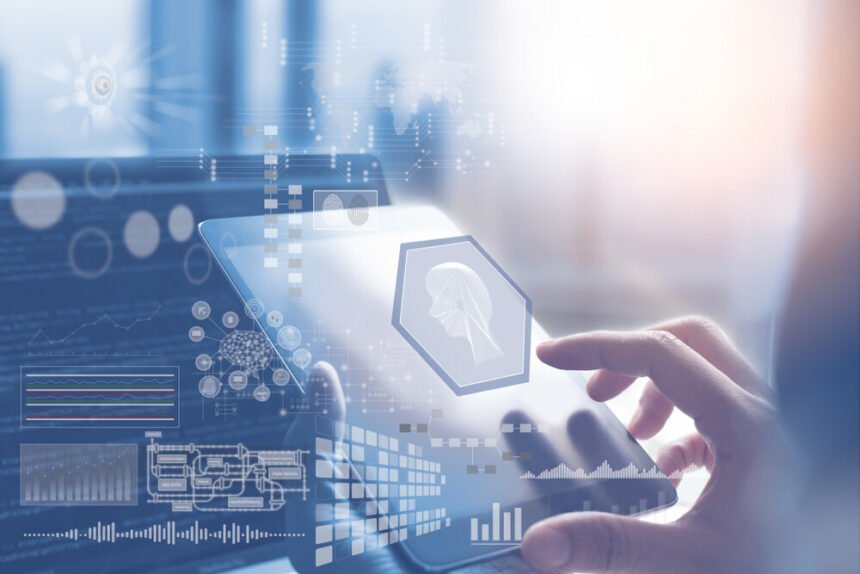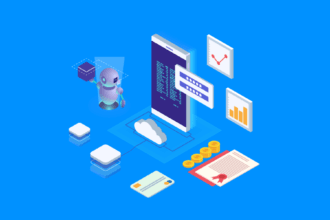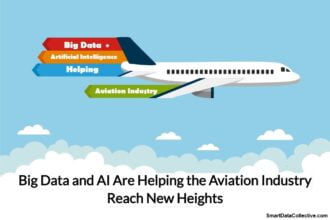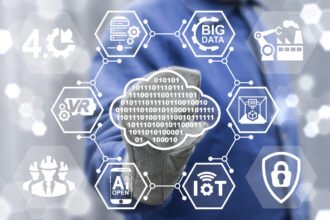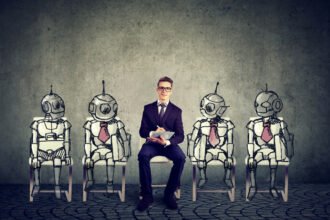Artificial intelligence (AI) is a hot topic these days, but it’s not a perfect technology. AI is like almost anything else in that it has both advantages and downsides. What are the pros and cons of artificial intelligence? Here’s what people bring up most often.
1. It Boosts Efficiency
Artificial intelligence excels at increasing efficiency. For example, an AI tool might automatically recognize an incoming email as an invoice and send it to the proper person or department. AI helps companies with data analysis and report generation, too. A well-trained algorithm can look for trends that humans may miss, plus process data much faster than people could alone.
The gains achieved by an organization could also be specific — such as determining how to increase energy efficiency. A recent project associated with the U.S. Department of Energy’s National Renewable Energy Laboratory involves using AI to analyze more than 16 terabytes of data collected for several years. The goal is to improve power usage, cooling effectiveness and other aspects related to data centers.
2. It Improves Forecasting
Forecasting was once primarily an effort based on experience. When predicting customer buying preferences or website traffic levels, forecasters used what they learned from the past to affect their future judgments. That still happens, but AI is now more likely to factor into the calculations.
In one example, scientists combined standard meteorological data with AI to predict lightning strikes. The system anticipated those events within a 10-30-minute span and a 30-kilometer radius. Other methods require obtaining radar or satellite data, but this new approach only needs weather station information. The researchers said that aspect makes it ideal for places outside of communication networks. The tech also allows predicting storms before they form.
A team at the University of Illinois also created an AI algorithm to predict corn yields. The project’s data came from 226 fields and included both ground and satellite information.
When people bring up the pros and cons of AI, the ability to make more accurate predictions often appears within the perks. That’s not surprising, especially since better forecasting could help businesses remain resilient.
3. It Enhances Quality Control
Opportunities also abound for AI to help companies keep their quality levels high. It’s then possible to reduce waste and improve customer satisfaction.
One such application involved a group at Hong Kong Polytechnic University applying AI for better fabric quality outcomes. The team used AI and computer vision to reduce instances of substandard fabric by up to 90%, allowing plant managers to spot and address issues quickly. Most textile managers use manual inspection processes, which are slower. They may also be less accurate due to problems like human fatigue.
AI quality control tools also exist for app developers. Those products find problems during the coding process instead of at the end. Becoming aware of issues earlier supports the continual need for speed in the software industry. Releasing new or updated apps that work without bugs can put companies ahead of competitors.
4. It Makes Humans Too Trusting in Technology
AI has made impressive gains, and it excels at some tasks compared to humans. However, a downside is that people could become too reliant on what AI says and not also use their intelligence to make conclusions. That’s unsettling, especially since law enforcement and health care are two fields that frequently deploy AI. A user who lets the technology overtake their knowledge instead of complementing it could lead to wrongful arrests or incorrect diagnoses.
Hannah Fry, an associate professor at University College London, advocates for only using algorithms after establishing the trust that humans will overrule them when necessary. However, that’s not necessarily straightforward. People naturally take cognitive shortcuts, and they often don’t pay attention to their surroundings. Both of those traits could make it challenging for them to detect when the AI got it wrong.
For example, being too dependent on Google Maps has caused people to drive into bodies of water or head in the wrong direction for hours. Paying attention to road signs and one’s surroundings could have avoided both of those things. Many individuals would rather assume the technology is right than exercise more situational awareness.
5. It Shows Biases
Humans train AI algorithms, and that may mean they unintentionally make the apps or tools biased. One recent example concerns allegations about gender discrimination with the Apple Card. That payment method pairs with Apple devices and is reportedly more secure than other methods because it has no number for criminals to steal.
An algorithm gauges the creditworthiness of Apple Card applicants, and numerous people allege that it’s not treating them fairly. In one instance, a woman was deemed less creditworthy than her husband despite having several factors in her favor. Apple could not explain the reason for that conclusion, though it did assert gender is not a factor the algorithm brings into an analysis.
In another case of AI bias, Amazon stopped using a hiring tool after investigations showed it penalized applications containing the word “women’s.” If someone worked at a domestic abuse shelter or was a female collegiate rowing team member and included those details when applying for a job, they might find themselves at a disadvantage.
6. It Lacks Universal Ethical Standards
A search query such as “What are the pros and cons of artificial intelligence?” may make a person embark on a research journey they didn’t expect. That’s because AI is a relatively new technology, and unanswered questions remain surrounding appropriate usage. Many of those relate to ethics.
For example, AI experts say technology could allow a machine to kill a person without human oversight. The most likely applications for such equipment are military-related. People are pushing back due to ethical fears, though. Just because such technology could exist, should it?
A related issue is that most people agree AI needs ethical standards, but their opinions differ about the specifics. For example, deontological ethics focus on intentions and means, while teleological ethical standards relate to outcomes. Beyond those differences, companies may refer to a separate set of rules when assessing how an algorithm behaves versus the broader function of an AI app.
These difficulties shed light on the likely reasons why a Genesys poll found that only 23% of companies using AI have written corporate policies defining ethical use. However, the same study found that 40% of employers without those documents feel the company should have one, and 54% of employees agreed.
It may take decades for people to reach an agreement for what constitutes ethical AI usage. The good news is that many companies — tech enterprises, in particular — are laying the all-important groundwork for that to happen.
Accurate Information Steers Smart Decisions
This list of the pros and cons of AI could prove beneficial to companies that choose whether to use it. Understanding both the advantages and possible downsides aids businesses in making smarter investment decisions concerning this emerging technology.


